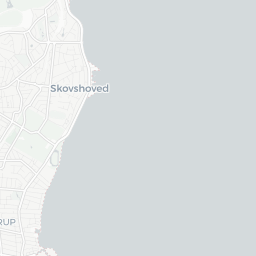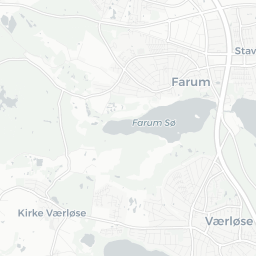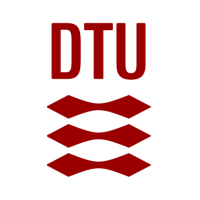PhD Scholarship in Investigation of the Impact of Unsteady Atmospheric Flows on Airborne Wind Energy Systems - DTU Wind
Danmarks Tekniske Universitet (DTU)
The PhD scholarship explores unsteady atmospheric flows' effects on airborne wind energy systems. Candidates will focus on reliability, dynamics, and control of tethered aircraft. A relevant master's degree is required, and there will be emphasis on collaboration and skill development.
We are seeking a candidate for a 3-year PhD program as part of the European Marie Skłodowska-Curie Actions Doctoral Network on “Airborne Wind Energy TRAining for Industrialization Network” (AWETRAIN). Airborne Wind Energy (AWE) is a radical new technology based on tethered aircraft generating electricity from altitudes higher than conventional wind turbines. This allows these devices to be installed in different locations, generate at different times and potentially provide cheaper electricity for Europe. This project will investigate the impact of unsteady atmospheric flows on airborne wind energy systems.
Do you want to contribute the green transition? Do you want work in a collaborative, international, multi-disciplinary team? Do you have ambitions for a future career in academia or the renewable energy sector? If so, you will have the opportunity to join the Airfoil and Rotor Design section in the Wind Turbine Design division. Furthermore, you will be joining a team of 12 PhDs, along with their supervisors in the MSCA Doctoral Network AWETRAIN project. Three of the positions will be located in Roskilde. More information on AWETRAIN is located here. Your main supervisor will be Senior Scientist Mac Gaunaa and you will join the PhD School at DTU Wind and Energy Systems.
Please note the mobility requirements for recruitment under the European MSCA program: in general, recruits must not have resided or carried out their main activity (work, studies, etc.) in the country of the recruiting organization for more than 12 months in the 36 months immediately before the recruitment date. You can find more information here.
Responsibilities and qualifications
In the AWETRAIN project, one of the main objectives is improving the reliability of airborne wind energy. One of the key elements in this is to get a better understanding of the unsteady interactions between tethered aircraft and atmospheric flows. In your PhD project, you will be working towards this by investigating the unsteady dynamics of the tethered aircraft (aircraft structure, aerodynamics and control) and its response to unsteady atmospheric flows. Relevant atmospheric flow regimes include gusts, fronts, and periodic flow structures, as well as turbulence. Realistic evaluation of tethered aircraft response requires a stable aero-servo-elastic simulation tool of suitable fidelity. Transient wind events contribute to unsteady loads on the tether and other components that can exceed their design limits; furthermore, they may push into an unstable flight regime and cause catastrophic failure. The objective of this project is to create and combine knowledge on relevant atmospheric flow statistics with AWE time-domain analysis and uncertainty quantification, to determine loads statistics and failure probabilities. The methodology will be used to investigate different AWE topologies and control strategies in the context of stability, reliability, and loads.
The position requires the candidate to help develop a medium fidelity aero-elastic analysis tool for AWE devices. Such a model is meant to evaluate the unsteady dynamics of the aircraft, while simultaneously taking account of unsteady aerodynamic forces, elastic deformation and control on the aircraft. DTU, has extensive experience developing similar aero-elastic models for wind turbines, hence the student would be expected to combine and repurposed existing models that have already been developed at DTU. Furthermore, the supervision team has extensive experience in aero-elasticity, so the student should expect strong support in this task.
The outcomes of your project could be identification of flow conditions and structures that can lead to catastrophic failure for different types of AWE, as well as insight into how key AWE design choices influence controllability, stability and thereby reliability. In the process of getting to the results, it is envisaged that a number of sub-results can be produced: flow metrics and simulation models specifically tailored for AWE; a high-fidelity time-domain simulation tool for turbulent flows with transients; uncertainty quantification methods for evaluating AWE load statistics and failure probabilities; investigation into how different AWE topologies and control architectures impact the reliability and stability of AWE.
The research work will be carried out within the AWETRAIN project, where you will be collaborating within a larger team of 12 PhD students, their supervisors and their institutions. The project strongly encourages teamwork and collaboration, so we expect the PhD candidates to mutually support each other.
A secondment to the AWE company Kitemill in Norway is foreseen in the latter part of the enrollment period. The secondment will offer the candidate a look into the working environment of a commercial AWE company, and an opportunity to verify numerically calculated load statistics with real life flight data.
Apart from the research work and secondment, your tasks may include teaching and supervising Master students and participation on outreach and dissemination activities of the department commensurate with research at PhD level.
You must have a two-year master's degree (120 ECTS points) or a similar degree with an academic level equivalent to a two-year master's degree. We are seeking candidates with documented qualifications in aerodynamics, micrometeorology, structural dynamics, statistics, numerical methods and programming. Note that the candidate is not expected to have strong qualifications in all these domains at the same time. The purpose of the project is to develop additional skills, so at minimum, the candidate should have a willingness to learn and master these skills.
The following qualifications will be an advantage in the assessment:
- A strong background in one or more of the core technical fields aerodynamics/fluid mechanics/flight mechanics/atmospheric flows/control
- A background and interest in sustainable energy
- Programming and modeling skills
- Excellent communication skills, both in writing and oral presentation
- Open-minded team player, able to work in multidisciplinary and multinational teams
- A longer-term interest in pursuing a research career
- Additional soft-skills like attention to detail, creativity, organization, patience and perseverance
We still encourage candidates that do not fulfill all the criteria to apply, as we do not expect all qualifications to be fulfilled. Furthermore, if you feel that you have transferable skills that are similar, then we still encourage you to apply. Additionally, if you think you can bring additional qualifications that can be an asset to the team, we are happy to consider these qualifications as well.
The working language of the project is English and thus the candidate must have suitable skills in both written and spoken English. Proficiency in a Scandinavian language is not required, but we expect an openness to learn Danish during your stay with us.
Note that the rules in the MSCA Doctoral Network stipulate that the applicants may not have had more than one year Danish residency during the last three years before the starting date of the position, so the applicants need to fulfill this requirement in addition to the more technical requirements. Please contact main supervisor Mac Gaunaain with any doubts you may have regarding how this is evaluated.
The PhD candidate will be selected through a competitive application process. Online applications will be screened against a set of criteria and a shortlist of candidates will be assessed by a specifically formed committee.
The supervision team for the PhD project consists of main supervisor Mac Gaunaa, supported by Michael McWilliam, Mark Kelly and Espen Oland from Kitemill. The supervision team want to see you succeed, so the PhD candidate can expect regular meetings and additional support as needed from the supervision team. DTU Wind Energy also has a mentorship program, where the PhD student will be paired with a senior member of the staff, to provide additional support.
The PhD candidate will be working within the Airfoil and Rotor Design section in the Wind Turbine Design division. The core objective of the section is to improve the design of rotors and airfoils for the conventional wind energy sector, but also new innovative concepts and potentially disruptive wind energy ideas are focus areas. The aerodynamic and aeroacoustic research in the section is based on a mix of modeling and experimental techniques, and range from engineering models to advanced aerodynamic models, facilitating Fluid Structure Interaction methods and multidisciplinary rotor design and investigation of new concepts in interaction with the industry. The new Poul la Cour Wind Tunnel, the Rotating Test Rig and the Research Turbine are integrated into the research work. Within the section, you will be working within a diverse team of scientists in multiple stages of their career.
Approval and Enrolment
The scholarship for the PhD degree is subject to academic approval, and the candidate will be enrolled in one of the general degree programmes at DTU. For information about our enrolment requirements and the general planning of the PhD study programme, please see DTU's rules for the PhD education.
Please note the mobility requirements for recruitment under the European MSCA program: in general, recruits must not have resided or carried out their main activity (work, studies, etc.) in the country of the recruiting organization for more than 12 months in the 36 months immediately before the recruitment date. You can find more information here.
Assessment
The assessment of the applicants will be made by a committee consisting of Mac Gaunaa (Senior Researcher), Michael Kenneth McWilliam (Senior Researcher), Mark Kelly (Associate Professor), Espen Oland (Head of Research and Development, Kitemill), Jenni Rinker (Associate Professor), and Head of Section Christian Bak.
We offer
DTU is a leading technical university globally recognized for the excellence of its research, education, innovation and scientific advice. We offer a rewarding and challenging job in an international environment. We strive for academic excellence in an environment characterized by collegial respect and academic freedom tempered by responsibility.
Salary and appointment terms
The appointment will be based on the collective agreement with the Danish Confederation of Professional Associations. The allowance will be agreed upon with the relevant union.
The PhD position is a full time position and will be fully funded for three years under the AWETRAIN project under the normal MSCA conditions found here. The period of employment is 3 years, and the preferred starting date is around 1st September 2025, and no later than 15th December 2025.
The workplace is primarily DTU Risø Campus, Roskilde, Denmark
You can read more about career paths at DTU here.
Further information
Further information, including the AWETRAIN research program description may be obtained from Senior Scientist Mac Gaunaa, DTU Wind and Energy Systems, +45 21 32 65 09, macg@dtu.dk
You can read more about DTU Wind and Energy Systems at www.vindenergi.dtu.dk/english
If you are applying from abroad, you may find useful information on working in Denmark and at DTU at DTU – Moving to Denmark. Furthermore, you have the option of joining our monthly free seminar “PhD relocation to Denmark and startup “Zoom” seminar” for all questions regarding the practical matters of moving to Denmark and working as a PhD at DTU.
Application procedure
Your complete online application must be submitted no later than 28 April 2025 (23:59 Danish time).
Applications must be submitted as one PDF file containing all materials to be given consideration. To apply, please open the link "Apply now", fill out the online application form, and attach all your materials in English in one PDF file. The file must include:
- A letter motivating the application (cover letter)
- Curriculum vitae
- Grade transcripts and BSc/MSc diploma (in English) including official description of grading scale
- A short PhD project proposal (maximum 2 pages plus references) describing a possible research objective, theoretical framework and intended methodological approach.
The interviews will be carried out within 2-4 weeks after the application deadline.
You may apply prior to obtaining your master's degree but cannot begin before having received it.
Applications received after the deadline will not be considered.
All interested candidates irrespective of age, gender, disability, race, religion or ethnic background are encouraged to apply. As DTU works with research in critical technology, which is subject to special rules for security and export control, open-source background checks may be conducted on qualified candidates for the position.
About the AWETRAIN Training and Research Program
AWETRAIN is an ambitious 12 PhD training network centered around enabling the industrial commercialization of Airborne Wind Energy. The network is coordinated by DTU with support of TU Delft, HM, PoliMi, Kitemill, Kite Power, Kitekraft and Airborne Wind Europe.
The training program is centered around preparing our Doctoral Candidates for career pushing world through the energy transition. To achieve our ambitious goals, we foresee rapid changes in our energy system, with radical new technology entering the space. As such, the program is built around developing the skills to work in multi-disciplinary teams, the awareness at multiple levels on how the sector is changing and giving you the agility to put yourself in the best position to affect this change.
The research program is divided into 3 work packages: WP3 Device and reliability, focusing on increasing the reliability of individual devices and plants. WP4 Plant and Scaling, investigating how industrial scale airborne wind energy plants will be constructed in the future. WP5 Society and Economics, is the work package looking at the economic and social impact of AWE. The present project is a key part of WP3.
About DTU Wind Energy
DTU Wind and Energy Systems, which used to be a division of Risø National Laboratory (until 2012), has undertaken basic research, teaching and commercial activities in all aspects of wind energy since the mid-1970’s. DTU Wind and Energy Systems is now the world’s largest public research institute for wind energy and energy systems, with about 400 staff members. The department is internationally recognized as being in the forefront of wind energy technology and smart energy systems research. We educate and train the next generation of engineers for a sustainable energy future. We collaborate with global leaders in industry and public authorities around the world to research and develop new technologies and services to power the green transition. In the Section for Airfoil and Rotor Design
, the team is focused on aerodynamic and aeroacoustic research based on a mix of modelling and experimental techniques as described earlier. The section is composed of a diverse group of 24 staff members, consisting of among others 2 professors, 7 senior researchers, 2 researchers, 1 post-doc and 4 PhD students.
Technology for people
DTU develops technology for people. With our international elite research and study programmes, we are helping to create a better world and to solve the global challenges formulated in the UN’s 17 Sustainable Development Goals. Hans Christian Ørsted founded DTU in 1829 with a clear mission to develop and create value using science and engineering to benefit society. That mission lives on today. DTU has 13,500 students and 6,000 employees. We work in an international atmosphere and have an inclusive, evolving, and informal working environment. DTU has campuses in all parts of Denmark and in Greenland, and we collaborate with the best universities around the world.
Adresse:
Opslaget er indhentet automatisk fra virksomhedens jobsider og vises derfor kun som uddrag. Log ind for at se det fulde opslag eller gå videre til opslaget her:















